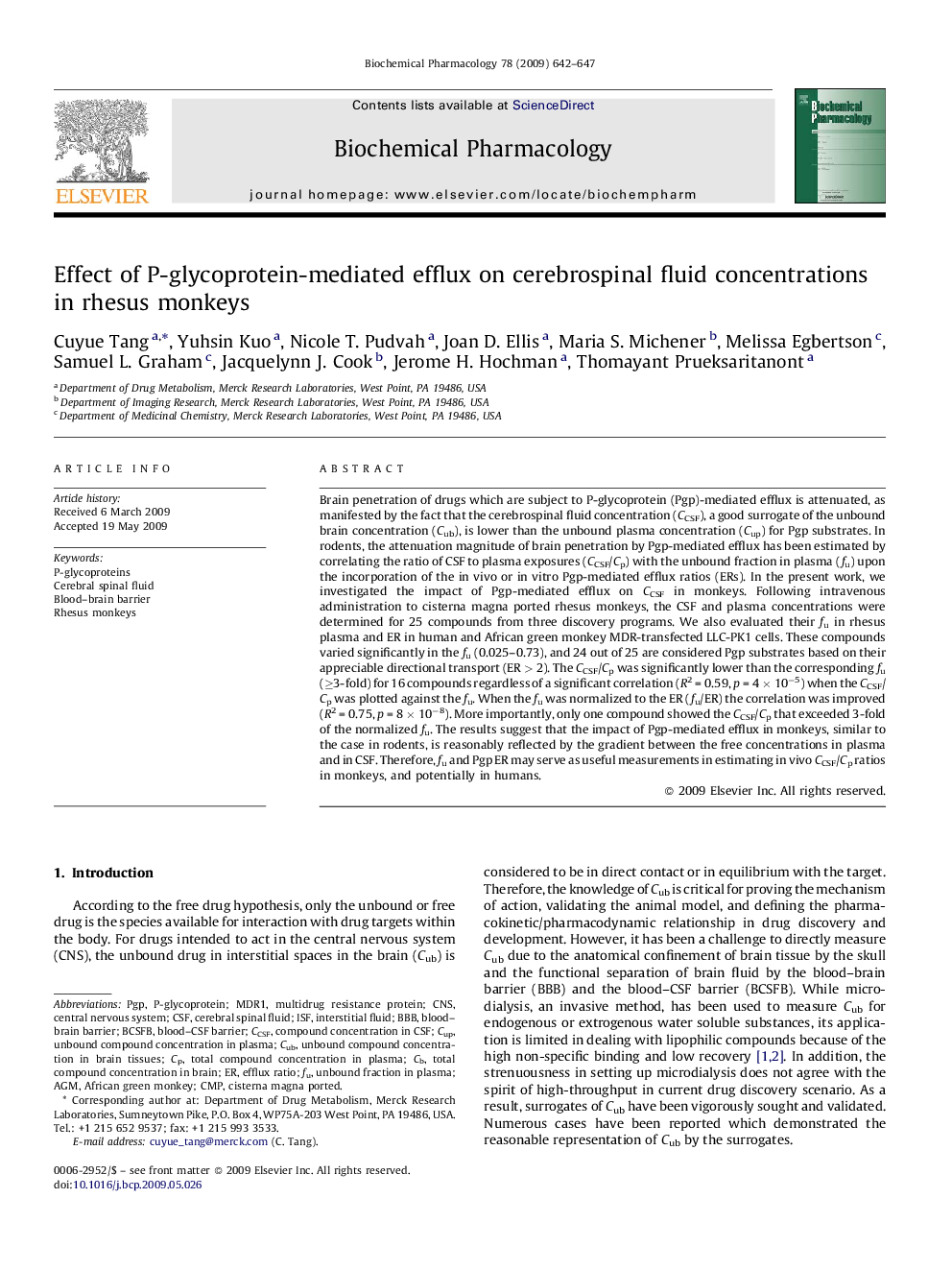| Article ID | Journal | Published Year | Pages | File Type |
|---|---|---|---|---|
| 2514063 | Biochemical Pharmacology | 2009 | 6 Pages |
Brain penetration of drugs which are subject to P-glycoprotein (Pgp)-mediated efflux is attenuated, as manifested by the fact that the cerebrospinal fluid concentration (CCSF), a good surrogate of the unbound brain concentration (Cub), is lower than the unbound plasma concentration (Cup) for Pgp substrates. In rodents, the attenuation magnitude of brain penetration by Pgp-mediated efflux has been estimated by correlating the ratio of CSF to plasma exposures (CCSF/Cp) with the unbound fraction in plasma (fu) upon the incorporation of the in vivo or in vitro Pgp-mediated efflux ratios (ERs). In the present work, we investigated the impact of Pgp-mediated efflux on CCSF in monkeys. Following intravenous administration to cisterna magna ported rhesus monkeys, the CSF and plasma concentrations were determined for 25 compounds from three discovery programs. We also evaluated their fu in rhesus plasma and ER in human and African green monkey MDR-transfected LLC-PK1 cells. These compounds varied significantly in the fu (0.025–0.73), and 24 out of 25 are considered Pgp substrates based on their appreciable directional transport (ER > 2). The CCSF/Cp was significantly lower than the corresponding fu (≥3-fold) for 16 compounds regardless of a significant correlation (R2 = 0.59, p = 4 × 10−5) when the CCSF/Cp was plotted against the fu. When the fu was normalized to the ER (fu/ER) the correlation was improved (R2 = 0.75, p = 8 × 10−8). More importantly, only one compound showed the CCSF/Cp that exceeded 3-fold of the normalized fu. The results suggest that the impact of Pgp-mediated efflux in monkeys, similar to the case in rodents, is reasonably reflected by the gradient between the free concentrations in plasma and in CSF. Therefore, fu and Pgp ER may serve as useful measurements in estimating in vivo CCSF/Cp ratios in monkeys, and potentially in humans.
Graphical abstractFigure optionsDownload full-size imageDownload as PowerPoint slide
